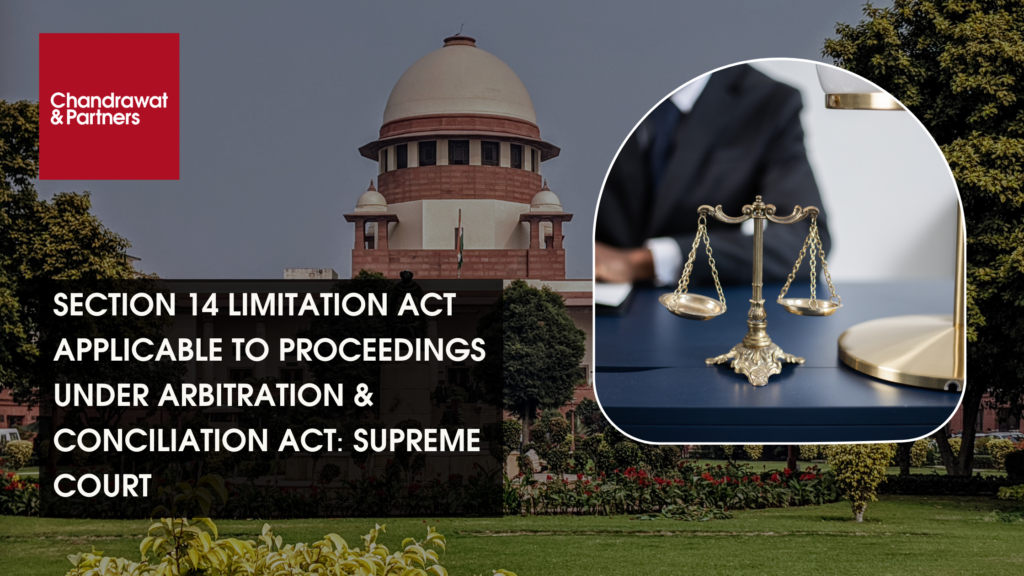Home > Recent Judgements > Section 14 Limitation Act Applicable To Proceedings Under Arbitration & Conciliation Act: Supreme Court
DEC 16, 2024
BACKGROUND
The Supreme Court, in the case of Kirpal Singh vs Government Of India, has addressed the issue of the applicability of section 14 of the Limitation Act, 1963 to the proceedings of arbitration. In this case, the appellant had incorrectly filed an appeal against the arbitral award before the High Court. After a while, the appellant realized that filing an appeal with the District Court under Section 34 of the Act was the best course of action. However, the district court rejected the appellant’s appeal on the grounds of being time-barred. The District Court refused to exclude the time spent before the High Court from the limitation period. The Court noted that as there is a limited window for contesting an arbitral ruling, the Limitation Act’s provisions must be interpreted generously.
KEY ISSUES
- Can the time spent pursuing cases under the Arbitration & Conciliation Act, 1996 before an incompetent forum be excluded by Section 14 of the Limitation Act?
- Is the Arbitration & Conciliation Act’s goal in line with the time exclusion under Section 14?
- What does “good faith” mean in arbitration proceedings under Section 14?
JUDGEMENT
By applying Section 14, of the Limitation Act, 1963 the Court clarified that the appeal that was filed with the District Court was within the limitation period. According to the Supreme Court, the Arbitration and Conciliation Act of 1996 is subject to Section 14 of the Limitation Act,1963. The application of section 14 guarantees that parties won’t suffer because of improper procedures when pursuing arbitration claims. The Court reaffirmed that the party must have acted in good faith and shown appropriate diligence in bringing the claim before the wrong venue for Section 14 to apply.
OBSERVATION
The Court stressed that, as long as the claimant shows diligence and an honest intention to rectify the problem soon, bringing a claim before an incompetent forum because of a genuine mistake qualifies as good faith. Relying on previous judgments, the Court emphasized the Limitation Act’s consistent applicability to arbitration procedures and expanded the idea to specifically apply Section 14. This judgment strikes a balance between proper justice and procedural error. By applying section 14 of the Limitation Act to the Arbitration & Conciliation Act, the Supreme Court ensures that genuine errors do not rule out valid claims. This method upholds arbitration’s efficiency goals while advancing justice. However, the parties must continue to exercise diligence, this judgment will provide them relief in knowing that good-faith procedural mistakes won’t stop them from pursuing justice.
For more information or queries, please email us at
enquiries@chandrawatpartners.com





